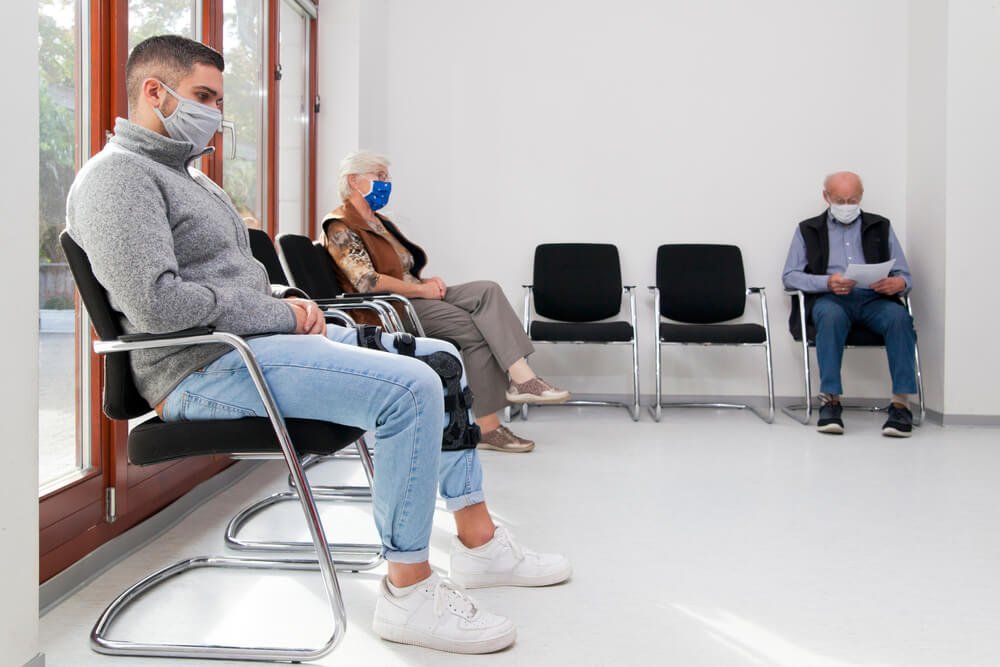NeuroStar® TMS Therapy
FDA-cleared, non-medication depression treatment
Existing Patients For Providers →
(855) 940-4867
Depression can be challenging to treat. Many people eventually find relief, but it can take trying talk therapy, medications, and more to get there. If you've already tried therapy and antidepressants without finding relief, you may have talked to your provider about transcranial magnetic stimulation (TMS). Since TMS is a treatment some providers are still gaining familiarity with, even after discussing it, you may be left wondering if TMS is right for you.
TMS therapy is an FDA-cleared method for treating major depressive disorder (MDD) and other conditions. It works by using a non-invasive handheld device to deliver soft magnetic pulses that stimulate areas of the brain associated with mood regulation.
TMS treatment typically takes place five days a week over the course of six to nine weeks, with each session lasting about 30 minutes. Side effects are minimal and typically subside quickly. Some mild reactions include headache, scalp discomfort, and slight tingling in facial muscles.
To help you determine whether TMS therapy is right for you, consider the following four questions.
To receive TMS therapy for depression and have it covered by your insurance, you will need a diagnosis of MDD, also known as clinical depression. A therapist or psychiatrist can evaluate you by asking you a series of questions, including how long you have been feeling depressed, how your appetite and sleep are, if you are experiencing fatigue or a lack of focus, and how these symptoms are affecting your life.
While TMS is also FDA-cleared for other conditions also, it has been used mostly in
patients with major depressive disorder, with
more than 50 percent of individuals studied responding that their symptoms were reduced in intensity by half. Nearly 40 percent enjoyed remission or a complete absence of symptoms.
TMS is not considered a first-line treatment, so your insurer will typically want to see at least two ineffective medication attempts before it will pay for your TMS treatment. Your insurer may also want to see that you have tried evidence-based psychotherapy, such as cognitive behavioral therapy (CBT). However, given that one-third of people continue experiencing depression symptoms even after trying two medications, you may be among those who qualify for TMS and have their treatment covered by insurance.
While TMS is generally associated with a low side effect profile, there are conditions that can make TMS treatment impossible. For example, if you have non-removable metal in your head, you are not a candidate for TMS. This includes aneurysm clips or coils, stents in the neck or brain, and deep brain stimulators. However, cavity fillings and braces are no problem. You will also want to inform your provider if you have epilepsy, bipolar disorder, or a substance use disorder. Also, your doctor might ask you about your alcohol use. These are not necessarily impediments to treatment, but letting your doctor know that you have one of these conditions can help them identify slightly different side effects. Since mild headaches are one of the few side effects of TMS, be sure to let your technician know if you experience frequent headaches so they can adjust your treatment accordingly.
Thanks for subscribing to our list!
While individual sessions are brief and allow you to continue with your day afterward, the total time for a TMS course of treatment is not insignificant. But as time for self-care, it is time well spent. In fact, many patients say that stepping outside their normal routine to take this time for themselves was an unexpectedly rewarding part of their TMS treatment. At the same time, no treatment works in isolation, so you should also aim to maintain other self-care habits, such as exercise, meditation, and journaling.
Is TMS Therapy Right for Me? Learn More
If you've tried several treatment strategies and are still experiencing depression, know that you are not alone and that there is hope for relief. Taking time to consider the questions posed above will help you feel more confident about your path forward, but don't hesitate to schedule a no-cost consultation to have more of your questions answered.
If you've tried several treatment strategies and are still experiencing depression, know that you are not alone and that there is hope for relief. Taking time to consider the questions posed above will help you feel more confident about your path forward, but don't hesitate to schedule a no-cost consultation to have more of your questions answered.
Take our short quiz to see if TMS therapy or nasal esketamine could be right for you
Subscribe for mental health, self-care, and TMS therapy and nasal esketamine updates for those affected by treatment-resistant depression or OCD.
Thank you for subscribing to our email list!
Oops, there was an error adding your subscription.
Please try again later.
By providing your email address, you are consenting to receive blog updates from Greenbrook TMS Inc. You may unsubscribe from these alerts at any time by following the “unsubscribe” link at the bottom of email alerts. At Greenbrook TMS Inc. we take the privacy and security of your personal information seriously. To learn more about how we protect your personal information, please refer to our Privacy Policy.


Greenbrook supports an accessible internet. If you have any questions about our accessibility features, please contact us at
(855) 940-4867 or info@greenbrooktms.com.
All Rights Reserved | Greenbrook TMS NeuroHealth Centers.